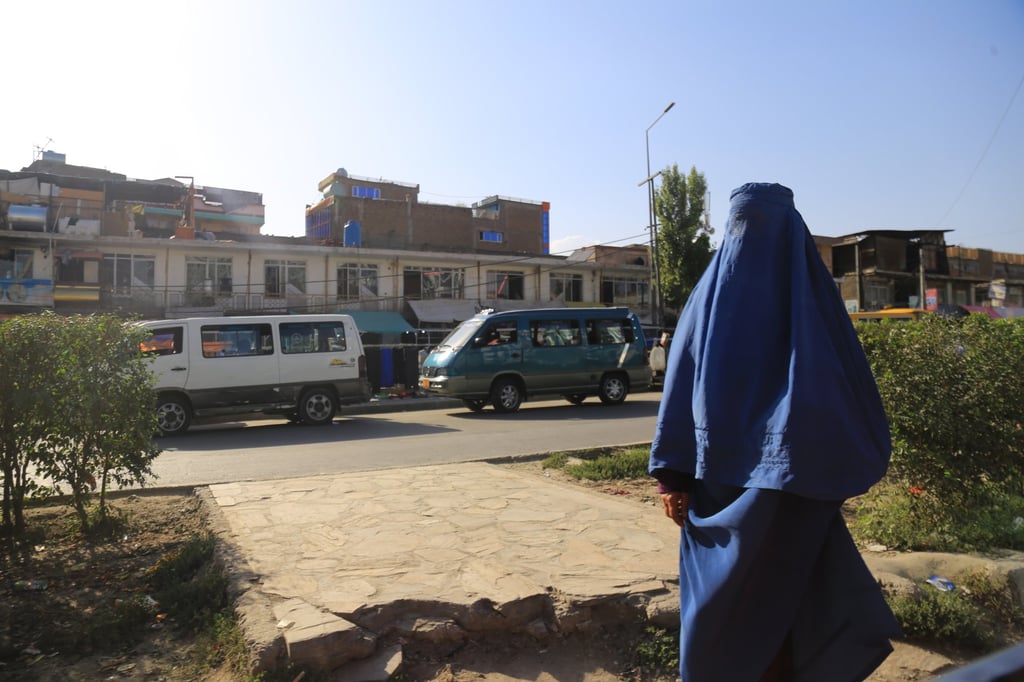The World Bank said in an April report that Afghanistan’s economy contracted by more than 26 per cent from 2021 to 2022. The threat of economic stagnation looms large until at least 2025, likely worsening poverty and unemployment, while food insecurity is expected to increase.

“We would like to have good and positive relations with Malaysia and have constructive cooperation in various fields,” Taliban spokesman Suhail Shaheen told This Week In Asia.
“We view Malaysia as a potential trading and investment partner. Particularly, they can help Afghanistan in the higher education sector.
“We welcome Prime Minister Anwar Ibrahim’s visit to Afghanistan any time, but it is up to him when to visit Afghanistan,” Shaheen added, noting that such high-level trips were important to pave the way for positive relations between the two countries in various fields.
Abdul Razak Ahmad, the founding director of Kuala Lumpur-based Bait Al Amanah think tank who met with Shaheen in May, does not think any high-level visit “should be expected in the near future” since Malaysia “has not officially recognised the regime in Afghanistan”.
“In my view, it is a matter of time that Malaysia would need to consider this [recognising Taliban rule] seriously,” added Abdul Razak, who said he has spoken with the Taliban on “many occasions”.
“This would depend on how soon other countries recognise the Islamic Caliphate,” said Abdul Razak, who is also the special representative of the Malaysian Foreign Minister on Peace Building and Countering Islamophobia.
To date, no other country has formally recognised the Islamic Emirate of Afghanistan, the official name of the government under the Taliban.
In September 2023, China became the first country to name a new ambassador to Afghanistan, despite not recognising Afghanistan’s rulers.
The UN has warned that the Taliban’s ban on girls’ education remains the Islamic Emirate’s biggest obstacle to gaining recognition as the legitimate rulers of Afghanistan.
For the Taliban, international diplomatic recognition is a “nice to have” but not a “must have,” said Nishank Motwani, Edward S. Mason Fellow at the Harvard Kennedy School.
“And that distinction is fundamental for understanding the motives and goals for their [the Taliban’s] international outreach,” said Motwani.
“The Taliban will not and have not diluted their fatwa or rulings on key issues concerning women’s employment and education, religious centric governance, or using the state to systematically oppress Afghans because any softening would betray their ideological foundation and call into question their legitimacy in the eyes of the Taliban leadership and rank and file,” said Motwani.
Bait Al Amanah’s Abdul Razak said the Malaysian government must accept that Afghanistan cannot be left in isolation forever. “And there is no way that the current Islamic Caliphate could be replaced or defeated. No war can defeat the resilience of the Taliban.”
He said Malaysia is known for a pragmatic foreign policy, one that often balances principles with practical considerations.
“While we may disagree with the Taliban government in certain areas, we cannot neglect the interests of the 40 million Afghan people. Doing so means that Malaysia is neglecting its Islamic duty towards the ummah (Muslim community),” said Abdul Razak.
“Malaysia is also in a unique position at present … having an internationalist prime minister [Anwar Ibrahim], who is highly regarded by the Muslim community globally,” he added.

“The Muslim world expects Mr Anwar to do more for the troubled Muslim societies.”
Abdul Razak said Malaysian officials, humanitarian agencies and the business sectors have visited Afghanistan to explore ways to establish working relationships in various sectors. Officials and private players from Afghanistan have also visited Malaysia.
Taliban spokesman Suhail Shaheen said Malaysia was interested in exploring the mining sector.
Afghanistan is estimated to have US$1 trillion worth of unexploited critical minerals, including lithium, a key component in electric vehicle batteries.
The Taliban hopes to leverage its vast critical mineral wealth to revive its economy and has signed deals with several Chinese companies.
Nishank Motwani of Harvard Kennedy School said the Taliban are increasingly courting China and some Muslim-majority countries such as Malaysia where the Islamic Emirate is granted an audience, but for different reasons.
“China has security concerns but also sees an opportunity to extract resources from the landlocked country. However, Beijing remains unconvinced the Taliban can provide a favourable security environment that would enable the capital-intensive mining industry to take root,” said Motwani.
In December 2022, an Islamic State affiliate attacked a Kabul hotel that caters to Chinese businesspeople, seriously wounding five Chinese nationals.
“Still, Beijing is keen to send signals that reassure the Taliban that it is the only actor that has the financial capacity, technical know-how, and diplomatic heft to engage with them, which helps to keep the Taliban’s core leadership in Kandahar invested in deepening bilateral ties,” said Motwani.
Taliban spokesman Suhail Shaheen said the Islamic Emirate is keen to cooperate with Malaysia, particularly in the higher education sector.
“It [Malaysia] is an Islamic country, we have many common things in terms of belief and culture and furthermore, their educational standard is the best,” said Shaheen.
Bait Al Amanah’s Abdul Razak said the Taliban are seeking cooperation in the areas of technical help in helping to design a new higher education blueprint for Afghanistan, restarting teaching and research in some of the higher learning institutions that faced a shortage of qualified academics as well as training their talents in various Malaysian universities.
“As for now, nothing concrete has been proposed, agreed or committed. The interests were mostly conveyed in unofficial meetings and Malaysia, I believe, would be willing to consider should there be an official request from the Islamic Caliphate,” said Abdul Razak.
When Shaheen was asked whether Afghan women, who are banned from going to school beyond the sixth grade, would be included in any future cooperation on higher education with Malaysia, he said: “A committee has been set up to address the issue of women’s education, we have to await the recommendations of that committee. Following that, you will have your question answered.”















